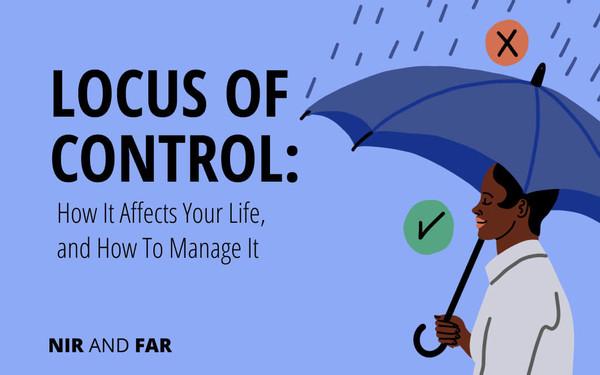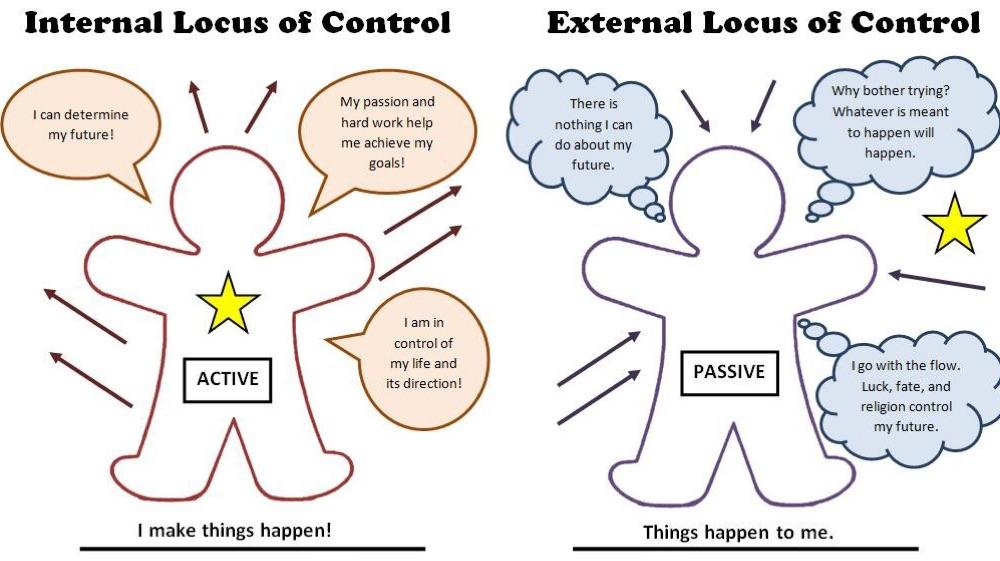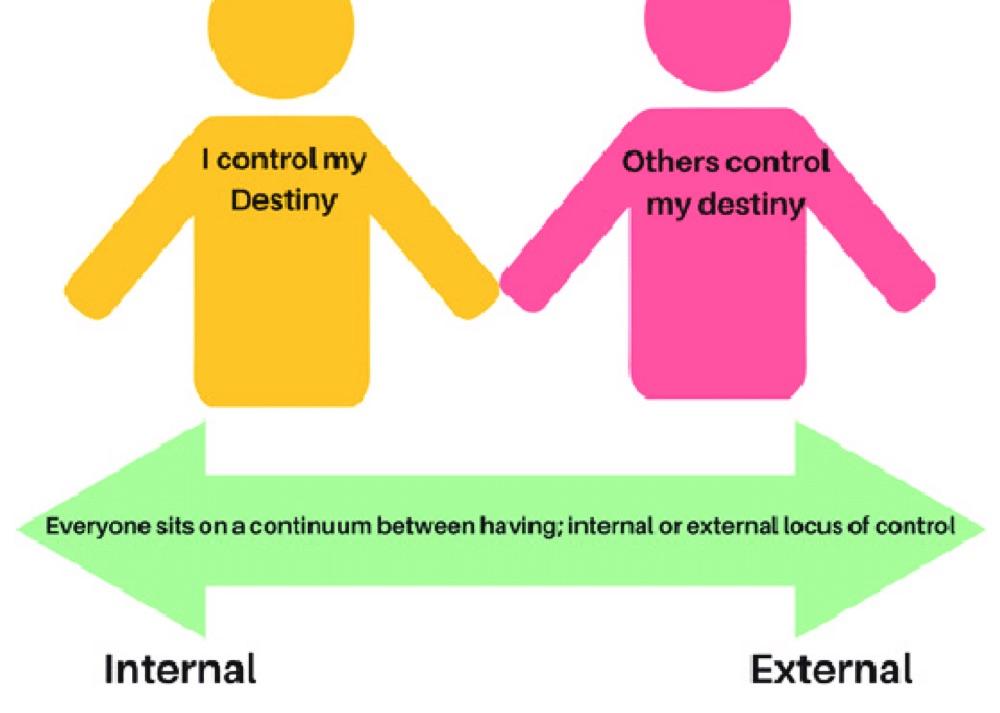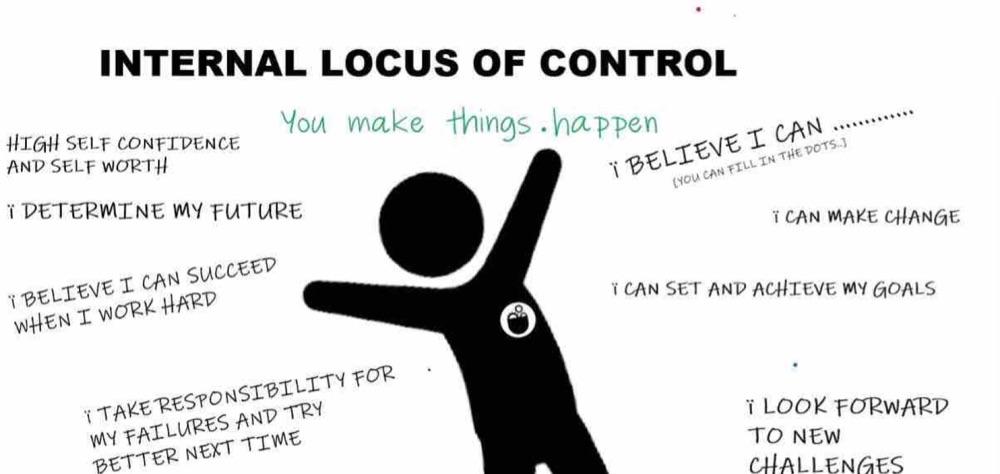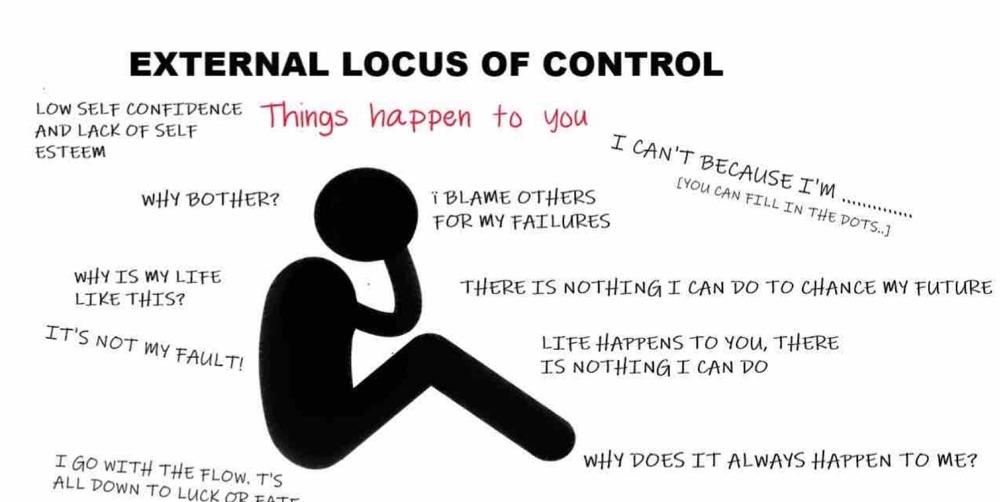Locus of Control: How It Affects Our Life and How We Can Manage It
Curated from: nirandfar.com
Ideas, facts & insights covering these topics:
16 ideas
·6.71K reads
46
3
Explore the World's Best Ideas
Join today and uncover 100+ curated journeys from 50+ topics. Unlock access to our mobile app with extensive features.
The “Locus Of Control”
Our reaction to life events—specifically how we explain them—significantly affects our life outcomes.
Of course, there’s a continuum—nobody thinks their life is 100% in their control. But our orientation toward what we believe influences our life has a profound impact on us.
Psychologists refer to this concept as a “locus of control,” a term psychologist Julian Rotter coined in the 1960s.
65
986 reads
External And Internal Locus Of Control
People with an external locus of control believe that forces outside them—fate, luck, circumstances—are responsible for the events of their lives.
In contrast, those who perceive an internal locus of control believe that their personal decisions and efforts guide much of their lives.
Interestingly, we could have an external locus of control about one area of our life but an internal locus of control about another: We may believe our health is completely genetic, uninfluenced by our choices, but think the success of our career is a direct result of our hard work.
67
653 reads
How Does Our Locus Of Control Affect Our Behavior?
If we think finding a partner is up to fate, we may not feel the need to actively seek, meet, and get to know new people. But if we think we have control over it, we may try harder to put ourselves out there. In professional contexts, if we think a promotion is largely outside of our control, we won’t be driven to pursue it. If we see it as a result of our efforts, we’re more likely to endeavor to deliver good work.
65
573 reads
How Does Our Locus Of Control Affect Our Life?
Countless studies have demonstrated the importance of locus of control in determining numerous life outcomes.
For example, the perception that 10-year-olds have of their own agency has been shown to significantly predict their health outcomes in their thirties, including obesity, overall health, and psychological distress; those with a more internal locus of control in childhood have a reduced risk of poor health later on.
Internal locus of control is also associated with psychological well-being, and academic and professional success.
62
502 reads
There Is No “Correct” Locus Of Control
Although studies generally suggest that having an internal locus of control is advantageous, there is no “correct” locus of control. Both extremes can present disadvantages.
So, wherever we fall on the spectrum, we may benefit from understanding our own orientation and how it may shape our behavior.
60
440 reads
How We Can Discover Our Locus Of Control
Julian Rotter’s full Locus of Control Scale is a 39-item questionnaire, available here:
https://arc.psych.wisc.edu/self-report/locus-of-control-scale-lcs/
But to get a quick sense of where we fall on the spectrum, we consider which group of statements below resonates more with us.
64
453 reads
Statements Indicating Internal Locus Of Control
- In my case, getting what I want has little or nothing to do with luck.
- It is impossible for me to believe that chance or luck plays an important role in my life.
- People are lonely because they don’t try to be friendly.
- In the long run, people get the respect they deserve in this world.
- There is a direct connection between how hard I study/ied and the grades I get/got.
60
407 reads
Statements Indicating External Locus Of Control
- Many times we might just as well decide what to do by flipping a coin.
- Many times I feel that I have little influence over the things that happen to me.
- There’s not much use in trying too hard to please people; if they like you, they like you.
- Unfortunately, an individual’s worth often passes unrecognized no matter how hard he tries.
- Sometimes I can’t understand how teachers arrive at the grades they give.
59
334 reads
Understanding The Strengths & Weaknesses Of Our Locus Of Control
Psychologists generally agree that although our locus of control is largely established through experiences of reward and punishment when we are children, it is a flexible construct that can change throughout our life.
However, not much research has been done on targeted interventions to change locus of control. Even so, we can notice how our locus of control may affect our life, and we can strive to reduce any negative effects it may have.
59
320 reads
So, What If I Have An External Locus Of Control?
Good news: If you have a more external orientation, you may be both more willing to let things go and better at sharing work with others. On the other hand, you may feel less motivated to put time and effort into tasks since they feel beyond your control.
59
329 reads
Oh, No! I Have An External Locus Of Control! What Do I Do?
Here are a few strategies to make sure your locus of control doesn’t get in your way:
- Practice accountability. When something happens—good or bad—step back and think through what part you played in it. Identify both the contributing external and internal forces.
- Catch external-oriented thoughts and challenge them. When you find yourself blaming something bad on external forces or crediting luck for your success, be mindful of the stories you’re telling yourself and reassess your own role in these outcomes.
62
286 reads
Oh, No! I Have An External Locus Of Control! What Do I Do?
- Avoid black-and-white thinking. You hardly ever have zero control over what happens. Open your mind to the gray areas in every situation.
- Write it out. Writing can be a great way to see your thoughts a little more objectively. If you can do a brain dump on paper, you can get a clearer picture of how you think about a situation, which can help in practicing all of the above strategies.
61
269 reads
Oh, No! I Have An External Locus Of Control! What Do I Do?
- Change your mindset. While locus of control interventions haven’t been well studied, mindset interventions have, and there is a lot of overlap between the two. Learn about and cultivate a growth mindset to improve self-agency, motivation, and resilience.
61
262 reads
So, What If I Have An Internal Locus Of Control?
Although an internal locus of control has many benefits—motivation, health, success—there are still some pitfalls to watch out for.
58
299 reads
Oh, No! I Have An Internal Locus Of Control! What Do I Do?
- Delegate. Those who lean more internal on the locus of control spectrum may find it difficult to delegate since they are accustomed to feeling in control. Stretch yourself to share tasks with others rather than do every little thing yourself.
- Let it go. When you perceive life to be largely in your control, you may routinely find yourself stuck in self-blame. Take the time to reflect on the internal and external contributors to situations, and then move on. Ruminating about your role in something can be unproductive and discouraging.
60
286 reads
Oh, No! I Have An Internal Locus Of Control! What Do I Do?
- “Control the controllables.” A mantra of many professional athletes, this phrase reminds us that we can control certain variables but not others. Strive to control what you can, but make peace with the uncontrollables and their inevitable impact.
61
317 reads
IDEAS CURATED BY
CURATOR'S NOTE
Regardless of where we lie on the locus of control spectrum, we’ll likely appreciate knowing how our orientation affects our life and how we can avoid the pitfalls it may lead us to.
“
Xarikleia 's ideas are part of this journey:
Learn more about motivationandinspiration with this collection
Identifying the skills needed for the future
Developing a growth mindset
Creating a culture of continuous learning
Related collections
Similar ideas
Read & Learn
20x Faster
without
deepstash
with
deepstash
with
deepstash
Personalized microlearning
—
100+ Learning Journeys
—
Access to 200,000+ ideas
—
Access to the mobile app
—
Unlimited idea saving
—
—
Unlimited history
—
—
Unlimited listening to ideas
—
—
Downloading & offline access
—
—
Supercharge your mind with one idea per day
Enter your email and spend 1 minute every day to learn something new.
I agree to receive email updates
